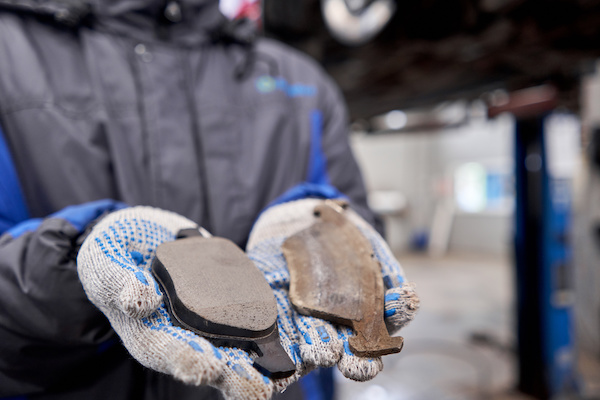
Brake pads are a vital component of the entire braking system in your vehicle. They provide the extra padding needed for a smooth, even stop. They are often made of certain compounds that impact brake performance for better or for worse.
The frequency of time needed in getting your brake pads changed is contingent upon a few possible factors, one being your level of mileage. Some makes and models require that you have new brake pads installed in as little as 25,000 miles, while with other models, you can wait until you've reached 50,000 miles.
There are some vehicles where brake pad replacement is not necessary until you've driven a total of 75,000 miles. In any case, your safest bet would be to have them checked whenever you schedule a routine tire rotation. Other times will require you to be aware of any signs that your brake pads are starting to wear out, as there are just a few that you should be aware of.
The first problem that crops up is any type of strange squealing noises. These will happen when you press on the brakes when making a stop. They point to the idea that your brake pads are getting thin and in need of a replacement. When this happens, it's time to get them checked.
Worn rotors can result in braking that is shaky or jittery. You might be dealing with rotors that are full of dirt and grime. Having them professionally inspected and cleaned is good in this case.
Your brake rotors could also be warped due to wear and tear. Another solution is to have your mechanic even out your rotors by grinding them. This can help make them flat and smooth for easier braking. But replacement may end up being the better option, as it can help save you money on costly repairs. You will then have newer, better rotors that will be safe for driving.
Your brakes can get worn anytime. Having them inspected on a regular basis is best for your safety and everyone else's. If you need brake repair, bring your vehicle to our shop today!